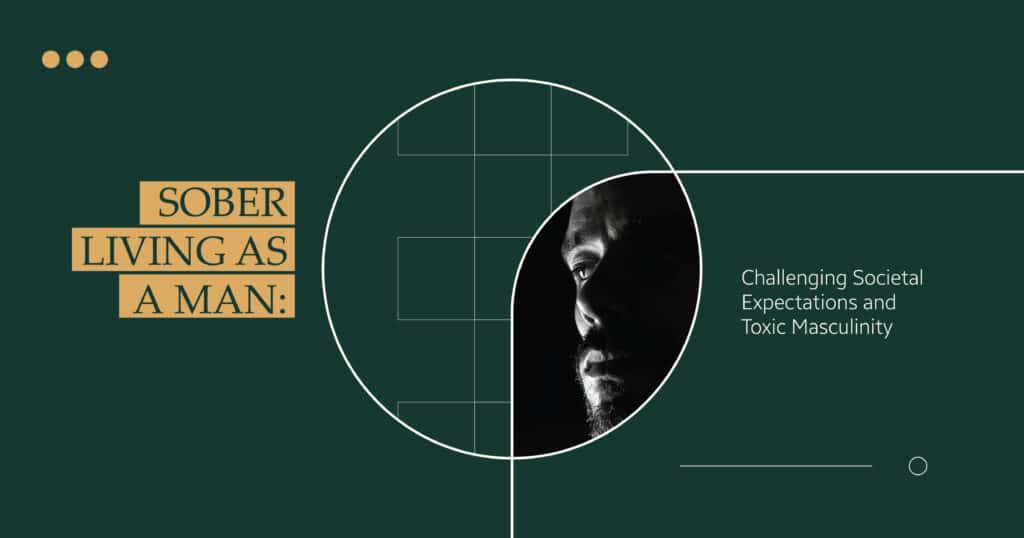
Choosing sobriety as a man goes beyond simply abstaining from alcohol or substance use. It involves challenging societal expectations and toxic masculinity that can hinder personal growth and well-being. By embracing a sober lifestyle, men have an opportunity to redefine masculinity, prioritize their mental and physical health, and build healthier, more authentic lives. This article explores the significance of sober living for men, focusing on the journey of overcoming addiction, challenging toxic masculinity, and embracing personal growth.
Overcoming Addiction: The Journey to Sober Living
Breaking the Cycle of Dependence
Recognizing the need for change and deciding to pursue a sober lifestyle is a courageous step towards overcoming addiction and reclaiming one’s life. It requires commitment, strength, and a willingness to confront the underlying issues that contribute to substance dependence.
Seeking Support and Professional Help
Successfully navigating the path to sober living often involves seeking professional help and accessing support networks. Engaging in therapy, joining support groups, and establishing connections with others who have gone through similar experiences can provide invaluable guidance, encouragement, and accountability.
Developing Healthy Coping Strategies
In sobriety, men learn to identify and adopt healthier coping strategies to manage stress, emotions, and challenges. These may include practicing mindfulness, engaging in physical exercise, cultivating meaningful relationships, and exploring creative outlets, all of which promote overall well-being and personal growth.
Challenging Societal Expectations and Toxic Masculinity
Redefining Masculinity
Embracing sober living offers an opportunity to challenge societal expectations of masculinity that often glorify excessive drinking, risky behavior, and emotional suppression. Men can redefine masculinity by embracing vulnerability, emotional honesty, and seeking help when needed, thereby fostering healthier relationships and inner growth.
Embracing Emotional Well-being
Sober living allows men to prioritize their emotional well-being by encouraging open communication, expressive self-care practices, and deepening connections with others. This shift promotes a healthier sense of self and fosters empathy, compassion, and understanding in relationships.
Rejecting Toxic Masculinity Norms
Toxic masculinity perpetuates harmful beliefs such as emotional detachment and dominance, which can contribute to substance abuse and hinder personal growth. Men who challenge these norms can embrace healthier levels of self-worth, authenticity, and respectful behavior towards themselves and others.
Building Healthier, Authentic Lives
Fostering Positive Relationships
Sober living enables men to build genuine and supportive connections based on shared values, emotional intimacy, and personal growth. Surrounding themselves with individuals who promote well-being, understanding, and empathy can provide a strong foundation for healthier, more authentic lives.
Prioritizing Self-care and Well-being
Embracing sober living involves prioritizing self-care and taking proactive steps to nurture overall well-being. This may include developing healthy routines, engaging in physical activities, practicing mindfulness, seeking therapeutic support, and setting meaningful goals to cultivate a fulfilling and purposeful life.
Inspiring Others
Men who lead fulfilling sober lives have the power to inspire and positively impact others. By sharing their stories, supporting those struggling with addiction, and challenging toxic masculinity norms, they can pave the way for more men to embrace healthier attitudes and behaviors, shifting societal perceptions and promoting positive change.
Choosing sober living as a man is a transformative journey that involves overcoming addiction, challenging societal expectations, and embracing personal growth. By rejecting toxic masculinity norms, men can redefine what it means to be a man and prioritize their mental, emotional, and physical well-being. Embracing a sober lifestyle provides an opportunity to build healthier, more authentic lives while inspiring others to challenge societal stereotypes and pursue personal growth. Let us continue to support and empower men in their journey towards sober living and contribute to a more inclusive and compassionate society.

